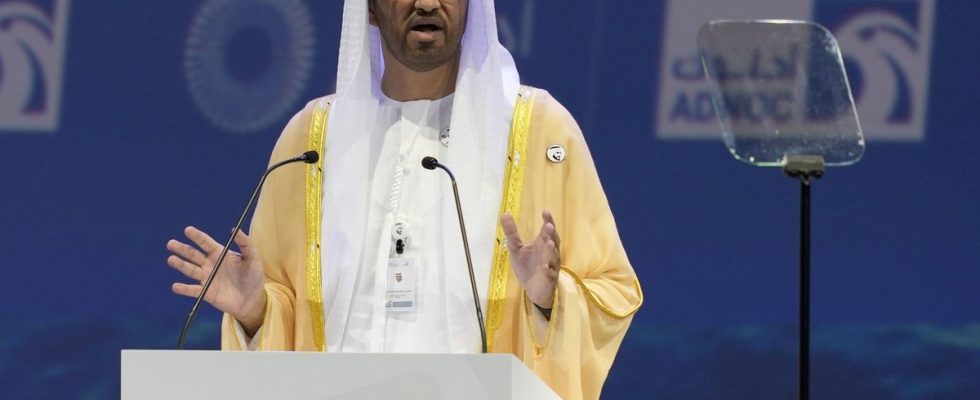It will be at the center of the world from November 30, and for two weeks. Sultan Al Jaber will chair COP28, which kicks off at the end of the month in Dubai, United Arab Emirates. The 50-year-old heads the Emirati oil company ADNOC, is also Minister of Industry and Advanced Technologies of the United Arab Emirates, envoy for the climate, and will therefore be at the helm of the climate high mass.
This atypical profile, linked to fossil fuels, has not failed to be criticized. But he denies being the Trojan horse of oil at the COP. “The people who accuse me of a conflict of interest don’t know my background,” he told AFP in July, during a rare interview. I have spent the majority of my career in sustainable development, project management and renewable energy. »
An oil and gas man
Sultan Al Jaber, who has already represented the United Arab Emirates at several COPs, founded the national renewable energy company Masdar in 2006, of which he still chairs the board of directors. In 2016, he was appointed CEO of ADNOC, with a mandate to “decarbonize” the company and “prepare it for the future”.
Being a gas and oil man is his fault, say the hundreds of NGOs and American and European parliamentarians who have called for his resignation from ADNOC or COP28. “Al Jaber clearly indicated that the oil and gas industry would have a special place at the COP,” Democratic US Senator Sheldon Whitehouse told AFP. But it is also its advantage, tempers a European negotiator, since any consensus will have to bring together nearly 200 countries, including those from the Gulf.
The reduction of fossil fuels is “inevitable”
Very aware that his image and the possible success of COP28 concern those of the Emirates, he hired a well-established team of communications professionals, most of them Anglo-Saxon. “My whole life is organized around key performance indicators, that’s how I manage businesses,” he insists. “Pragmatic” and “realistic”, he is there to “deliver” “real” results, everything to “keep the objective of 1.5°C (warming) within reach”.
Surprisingly, in nine months he managed to win over some of the skeptics. “He is very direct, listens,” confides Harjeet Singh, COP veteran who speaks on behalf of the essential Climate Action Network (a network of 1,900 organizations). A first turning point occurred in Bonn in June, when Sultan Al Jaber described the reduction of fossil fuels as “inevitable”. Then his “letter to the parties” in July detailed his position on fossils, renewables, finance… Defusing criticism from those who accused him of hiding his game. “He is very firm, but we agree on our disagreements,” continues Harjeet Singh.
“A man who knows his files”
China, Europe, Brazil… Sultan Al Jaber visited more than 25 countries in nine months, his team told AFP. His predecessor at COP21, Laurent Fabius, speaks of a “man who works, who knows his files very well”. But will Dr Sultan, as his teams call him, have the strength and tact to adopt a text that is both ambitious and acceptable to the 198 parties?
“It is much less proactive than the British were during COP26,” regrets the European negotiator, who finds the Emirati presidency “a little behind” in negotiating the final text. Sultan Al Jaber reminds that he will not decide anything… But history shows that COP presidents can catalyze agreements.

